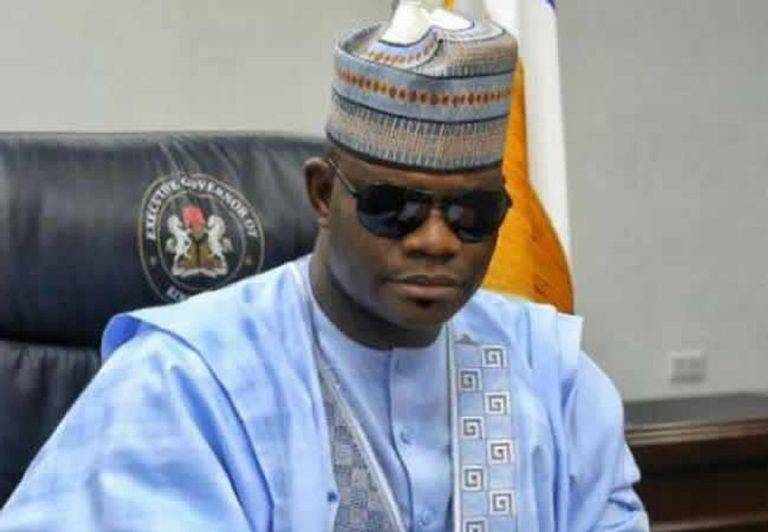The Economic and Financial Crimes Commission (EFCC) said Yahaya Bello, the beleaguered former governor of Kogi State, reportedly took $720,000 from the government account to pay school tuition. According to EFCC Chairman Ola Olukoyede, Yahaya Bello transferred the funds to a Bureau de Change operator to pay his child’s school fees in advance.
The disclosure occurred after the anti-corruption bureau proclaimed the fugitive former Governor wanted. Recall that yahaya Bello had stated that he was prepared to go before the Federal High Court in Abuja to respond to the EFCC’s 19-count allegation against him. Though Bello was not present for his arraignment, he briefed a team of lawyers who spoke to the court on his behalf on Tuesday.
Mr. Adeola Adedipe, SAN, a member of his legal team, informed the court that his client would have made himself present for the proceedings but was terrified of being detained. “The defendant wants tocome to court but he is afraid that there is an order of arrest hangingon his head,” Adedipe, a Solicitor General, said.
As a result, he petitioned the court to overturn the previous exparte arrest order granted against the former governor. Adedipe, SAN, maintained that at the time the arrest warrant was issued, the charge had not been served on his client as required by law. He stated that only at the resumed proceedings on Tuesday did the court approve substituted serving of the charge on the defendant through his counsel.
“At the time the warrant was issued, no order for substituted service had been made. That order was simply placed this morning. “A warrant of arrest should not be hanging on his neck when we leave this court,” the defendant’s attorney added.
Furthermore, the yahaya bello insisted that the EFCC is an illegitimate organisation. According to him, the Federal Government did not confer with the 36 states of the Federation before passing the EFCC Act through the National Assembly. He said that Section 12 of the 1999 Constitution, as amended, required the various Houses of Assembly of states to ratify the Act before it could take effect.
“This is a significant issue that touches on the constitution and the principles of federalism. “It must be resolved because the EFCC is currently an illegal organisation,” Yahaya Bello’s lawyer added.
However, the EFCC’s lawyer, Mr. Kemi Pinheiro, SAN, asked the court to reject the plea, arguing that the arrest warrant should not be put aside until the defendant appears for his trial.
“The defendant cannot stay in concealment while filing multiple applications. He cannot argue for the arrest order to be vacated until the defendant appears in court for his arraignment. He cannot be heard on that application.
“The major concern should be determining the defendant’s whereabouts. All of the applications he is bringing are nothing more than dilatory tactics designed to prolong his arraignment and impede the procedures. “If he wishes to have the arrest order lifted, he may do so by coming here and filing an application.
“Our position is that the defendant should be denied the right of being heard, until he is physically present before this court.”
The EFCC’s lawyer further contended that, under section 396 of the ACJA, 2015, the court could not effectively assume jurisdiction to decide any application or objection in the case until the defendant was arraigned.The anti-graft agency stated that it would not execute the arrest order if the defendant’s counsel agreed to ensure his appearance on the next adjourned date.
“If he agrees that his client (Yahaya bello) will be in court on the next date, I can tell him that the arrest warrant will not be enforced. “If he gives that assurance, as the prosecution, I will personally apply for the warrant to be discharged,” EFCC counsel Pinheiro, SAN, said. The EFCC informed the court that the Supreme Court has since resolved the issue of its constitutionality.

Yahaya Bello
“The case brought before this court is not against a state or a House of Assembly, but rather an individual accused of laundering public funds. “It is against an individual who is said to have taken public funds to buy houses in Lagos, Maitama and also transfered funds to his accounts abroad,” the EFCC said in a statement (Yahaya bello).
Source: Vangaurdngr.com

